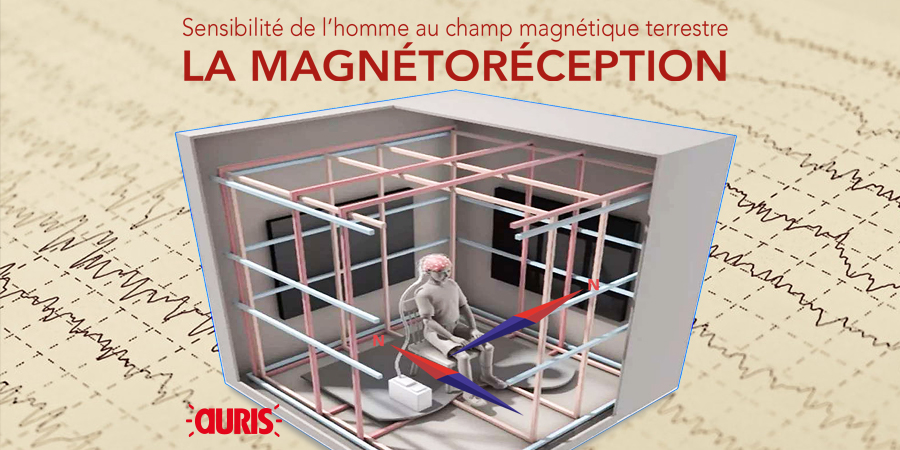Although weak, the earth's magnetic field is perceived by various animals, many vertebrates respond to magnetic stimuli: fish, amphibians, reptiles, birds. Among mammals: whales, rodents, bats, cows, dogs... In the microbial world too, bacteria have magnetite crystals, a kind of compass, which allow them to orientate the cell's swimming according to the lines of the magnetic field. Magnetite is thus present in many animals, including the human brain.
Californian researchers have carried out experiments demonstrating magnetoreception in humans: our brain would unconsciously detect the earth's magnetic field. The researchers of the Caltech Institute of Technology (California) wanted to capture these unconscious reactions of the brain. They created a Faraday cage (isolated from the earth's magnetic field) in which a static magnetic field of 35 µT (microTesla) could be applied and directed in different directions. They followed the electrical activity of the 34 participants' brains by electroencephalograms.
During the experiment, each participant had to remain seated on a chair in this isolated room, for 7 minutes, with their eyes closed, while the magnetic field was modified.
The field could rotate clockwise or counterclockwise, as if you were moving your head left or right, and it was oriented downward, with a 60° tilt from the horizontal, like the local earth magnetic field.
The participants did not feel anything in particular when the magnetic field was modified, but their brains seemed to react. The researchers observed that the amplitude of the alpha waves decreased significantly in some participants. Alpha waves (frequency of 10 Hz) dominate an electroencephalogram when we are relaxed. When a stimulus suddenly appears, the rhythm of the alpha waves is desynchronized, they decrease in amplitude. This phenomenon, called "alpha event-related desynchronization" or alpha-ERD, can occur, for example, when the brain perceives a flash of light. The alpha-ERD means that the brain has picked up a stimulus and is processing the information.
The study shows that the human brain responds to changes in the Earth's magnetic field. According to the Caltech Institute, "we have a sensory system that processes the geomagnetic field all around us."
A new question then arises: what would be the purpose of this geomagnetic sense in humans? Perhaps our hunter-gatherer ancestors used it for orientation and survival.
In the experiment, there were differences between the participants: some hardly reacted, while others had a drop of half of the alpha waves after the magnetic change. This suggests that human beings vary in their geomagnetic sensitivity from one person to another.
These results confirm those of the various clinical studies conducted by Auris, which show that there are hyper-rapid, fast and slow responders to magnetic therapy in patients.

